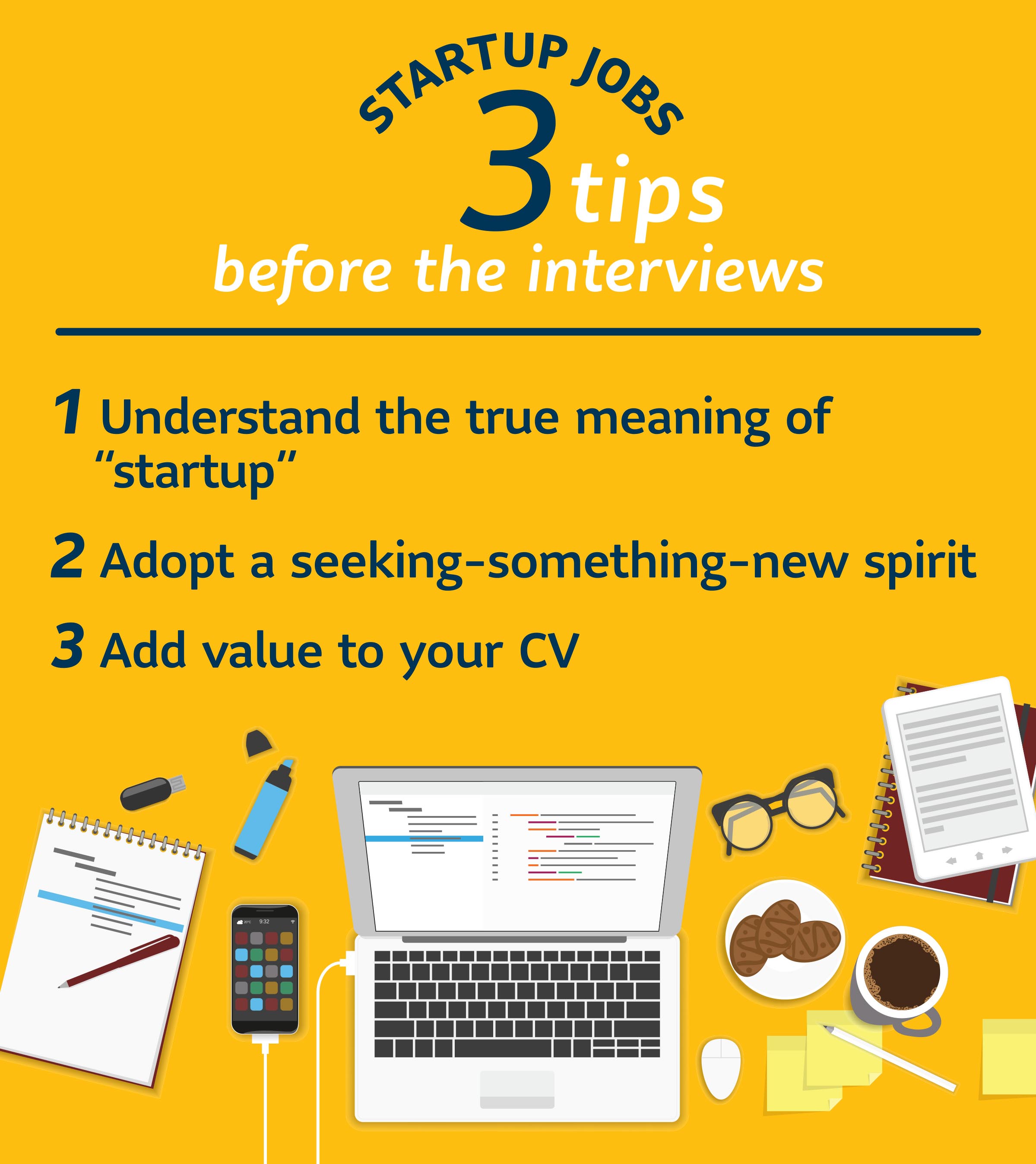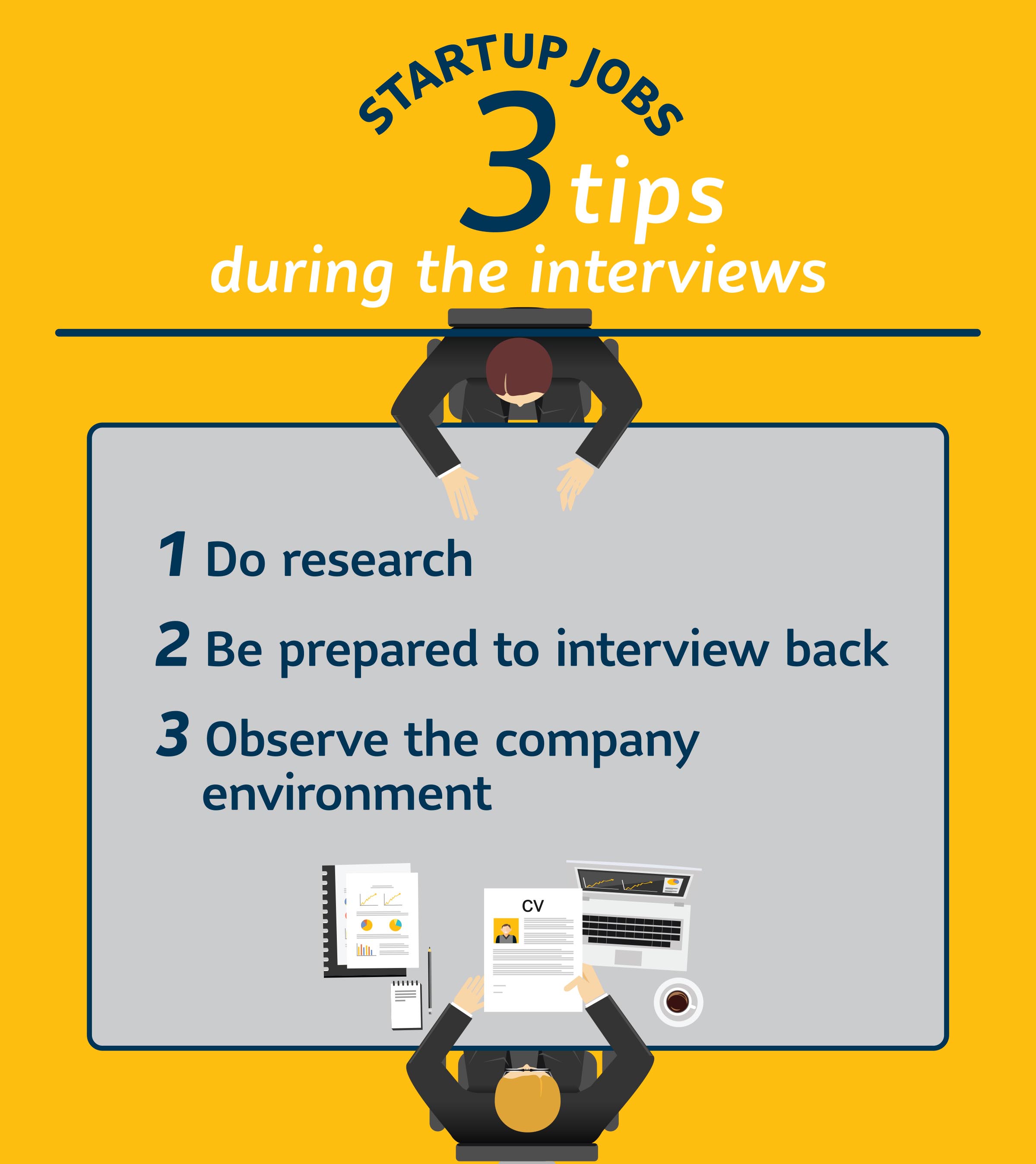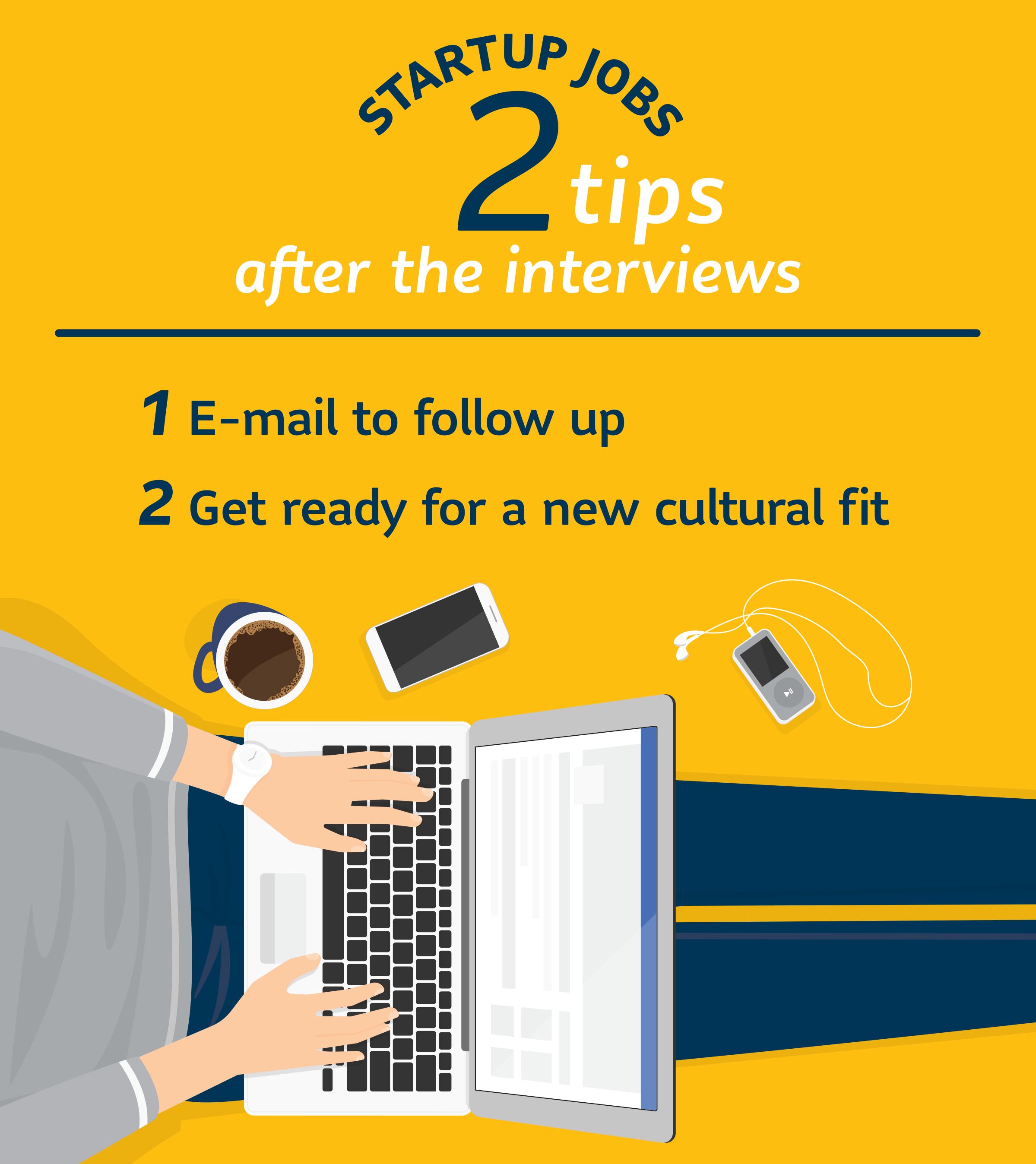After I graduate, should I get a job or start a business? We set out to learn about the sweet and bitter moments of both decisions through conversations with the founder of a skipping academy, and a flight attendant.
Want to find a job in a startup? Things that you can’t miss before, during and after the interviews
OK, you don’t want to be just some tiny cog in a big traditional corporation? And working in a startup or a new industry can offer more flexible, and more challenging work, which sounds far more attractive. So why not give it a try? But compared to interviewing with a traditional company, what do you need to pay attention to?

Before the interviews:

1. Understand the true meaning of “startup”
First of all you need to give a thought to what a “startup” really stands for: For example, due to their limited resources, many startup companies might have less discrete divisions of work, so they would like to recruit people who are multi-talented. As an interviewee, you’ll need to be prepared for that and ready to multi task. That might involve marketing, PR, logistics, sales, or all of them! This could also mean longer working hours. But to your benefit, it could help you gain a lot of experience in a short time, and give you more opportunities to explore other areas later.
2. Adopt a seeking-something-new spirit
The challenges that many startup companies face are often huge, and they usually have to react swiftly to market changes. If the company’s business involves new technology products, they may be extremely sensitive to the market and have to keep innovating. You have to ask yourself if you are strong in adapting to change? Are you one who dares to create and innovate? When facing an ever-changing market environment, would you feel insecure, or excited to accept the constant challenges? Before going to the interview, you need to ask yourself honestly if you possess these new hiring criteria.
3. Add value to your CV
When writing your resume, you should emphasize important attributes, such as if you are willing to take up challenges, are adaptable, love to learn new things and are good at communicating, working with others under pressure, making judgements, and happy to work on different tasks etc. If in your past work history, you have experience of working for big corporations or even starting up a business, be sure to include them as these are things that can add value to your CV profile.
During the interviews:

1. Do research
No matter what kinds of new products or services the startup is dealing with, you should try and get to know something about their features, understand the competitors’ pros and cons, and even work out some areas for improvement. If the products or services are not easy to buy or acquire, then you need to research the information, check related reports, and ask people who work in the industry for details if you can. If you gain enough understanding, it might help you to answer key interview questions.
2. Be prepared to interview back
One thing that is very different from interviewing with traditional companies: you should attempt to interview back, and ask questions of the interviewers. Since the biggest potential problem a startup might face is its future prospects, you should have the courage to ask sensitive questions, such as what is the expected growth of company? Does the company have adequate funding? If the company runs a deficit for a long time, how long can it operate? Is the company’s goal to get acquired or get listed? Under what circumstances the job position might be cancelled?
3. Observe the company environment
Don’t hesitate to observe the company environment and atmosphere, and to imagine what it might feel like to work there in the future? You need to know that while the employer is picking you, you are also picking them. If there’s a chance, you can also see if the founder has charisma, and what the company culture and management style are. These are important as the leadership will directly affect the company’s development, and ultimate success. So the more capabilities it has, the more you can learn.
After the interviews:

1. E-mail to follow up
The same as applying for a job in a traditional company, you should send an email to the interviewer to say thank you for the interview opportunity. Being polite is the golden rule. Every boss wants employees who are well-mannered and responsible. And of course, don’t forget to ask any supplementary questions that you missed, or correct any wrong opinions that you may have expressed during the interview.
2. Get ready for a new cultural fit
Working in a startup requires a “cultural fit”. Think this through after the interview, and consider if you could fit in well with the company culture, and if you have the confidence to build a good team spirit with the other employees you met or saw? Remember, what a startup requires is not a “get-the-job-done” attitude, but a new member who is so dedicated you might need to do extra and even work beyond the original scope of the job description. You need to manage your expectations well, don’t complain, but instead show a “sense of mission” that you are willing to retreat and advance with the company together.
Information provided above is for reference only, please refer to the Conditions of Use of this site.

![[Be Inspired by Dialogue] A Start-up Founder VS a Working Person, who do you want to be?](/content/dam/sunlife/legacy/assets/hk/Life%20Moments/Starting%20Out/a-startup-founder-vs-a-working-person-icon.jpg)


